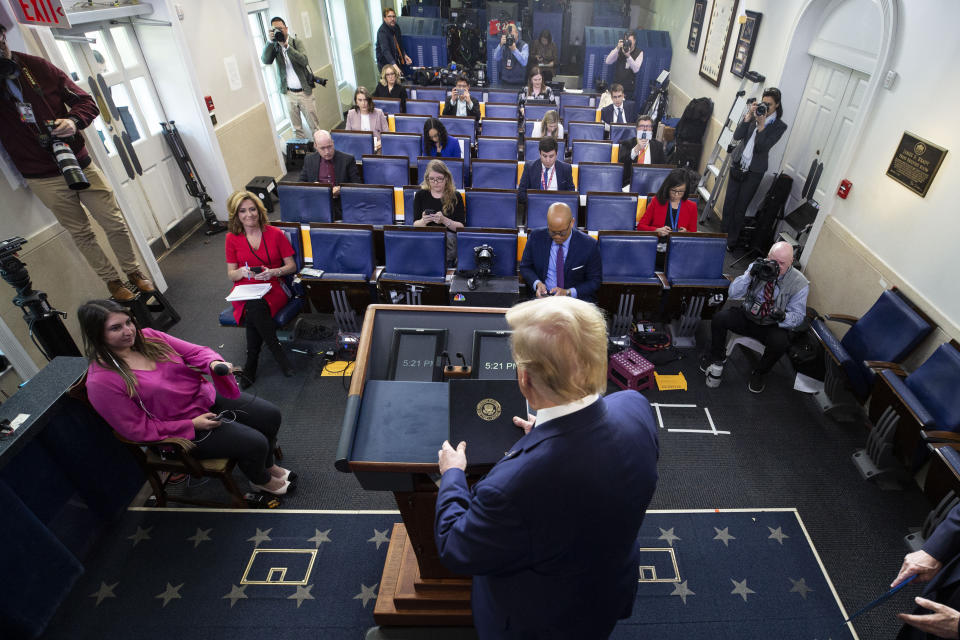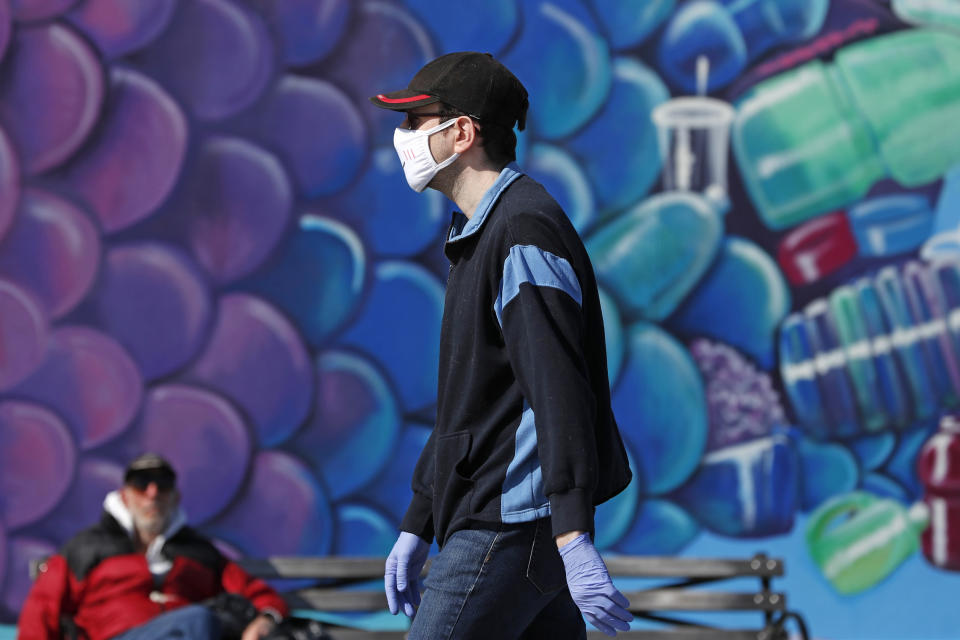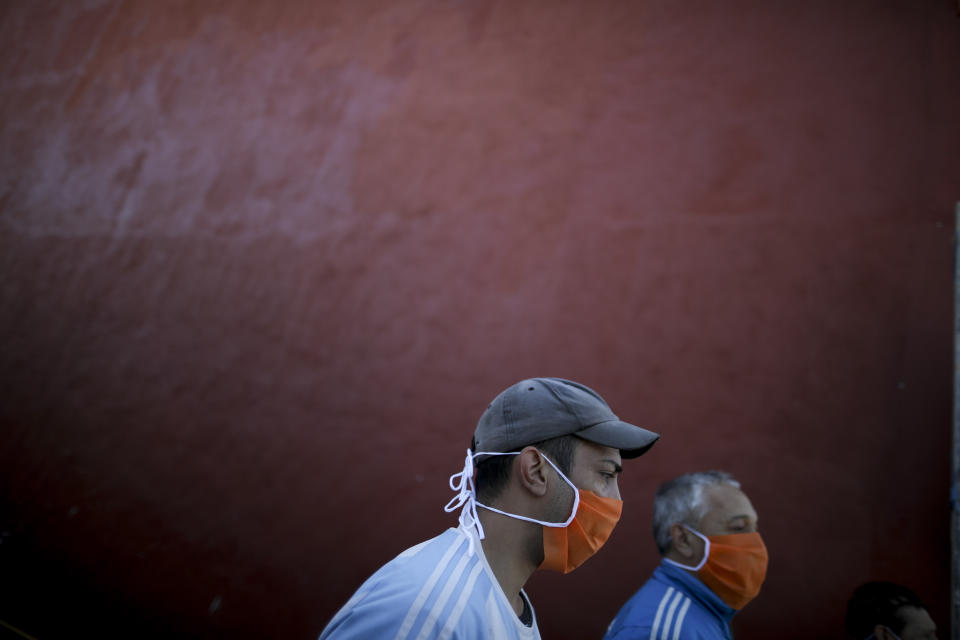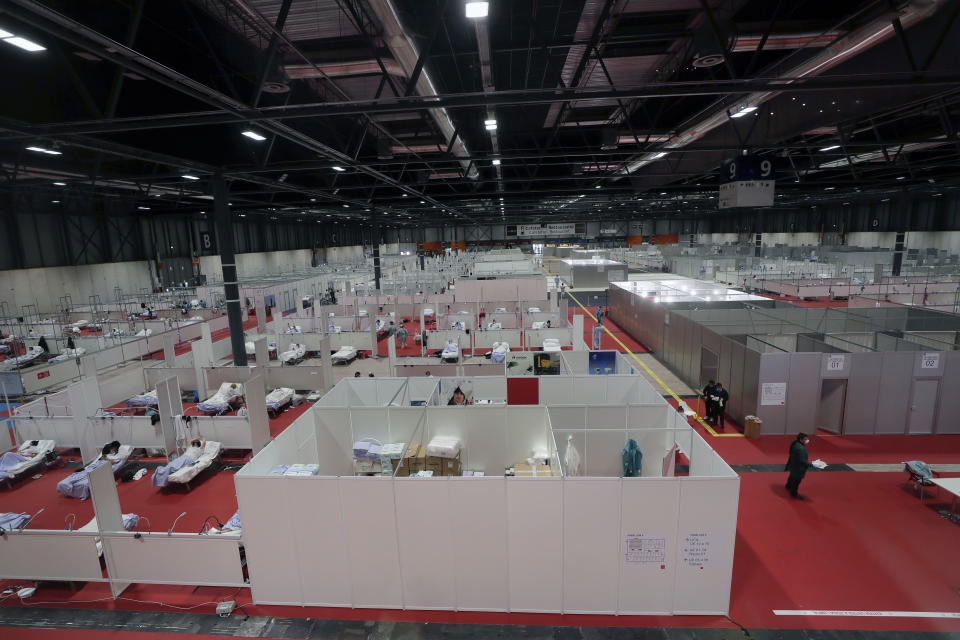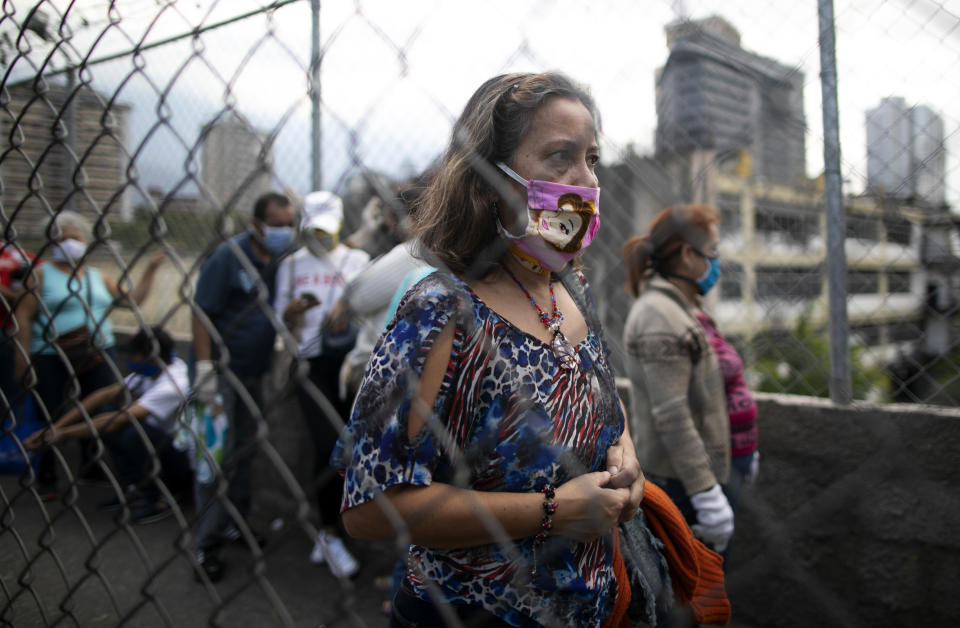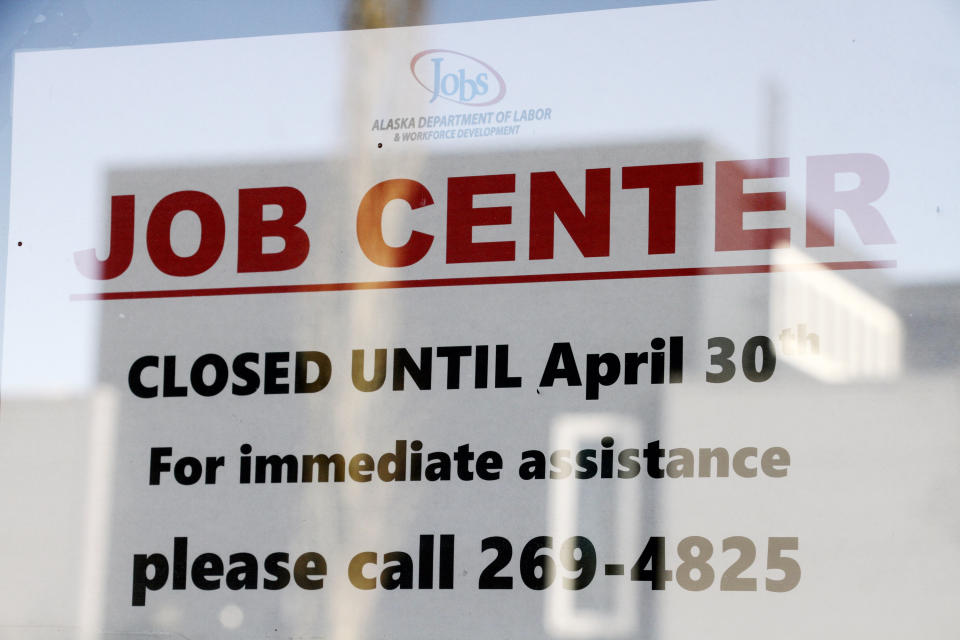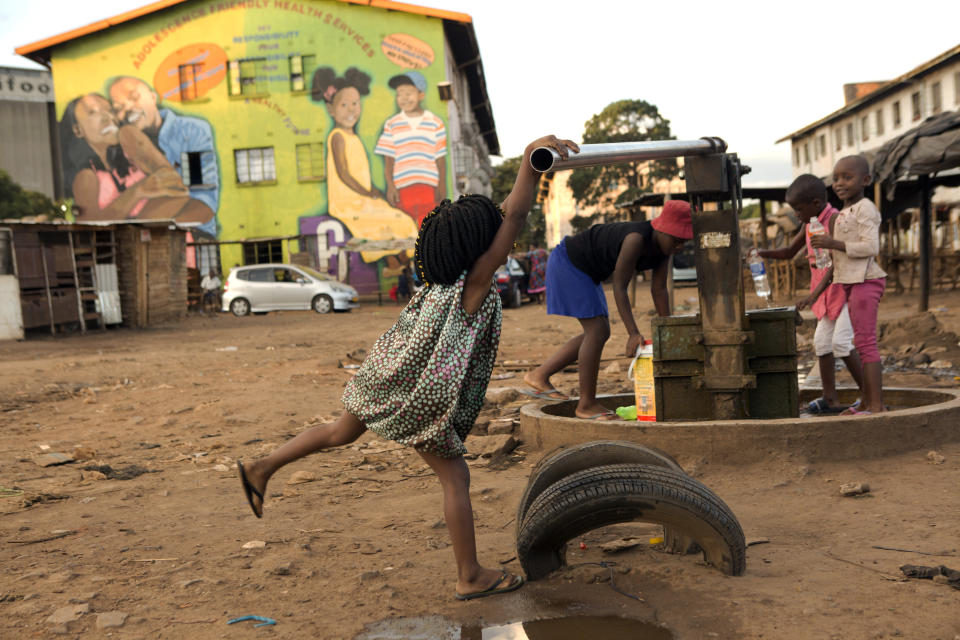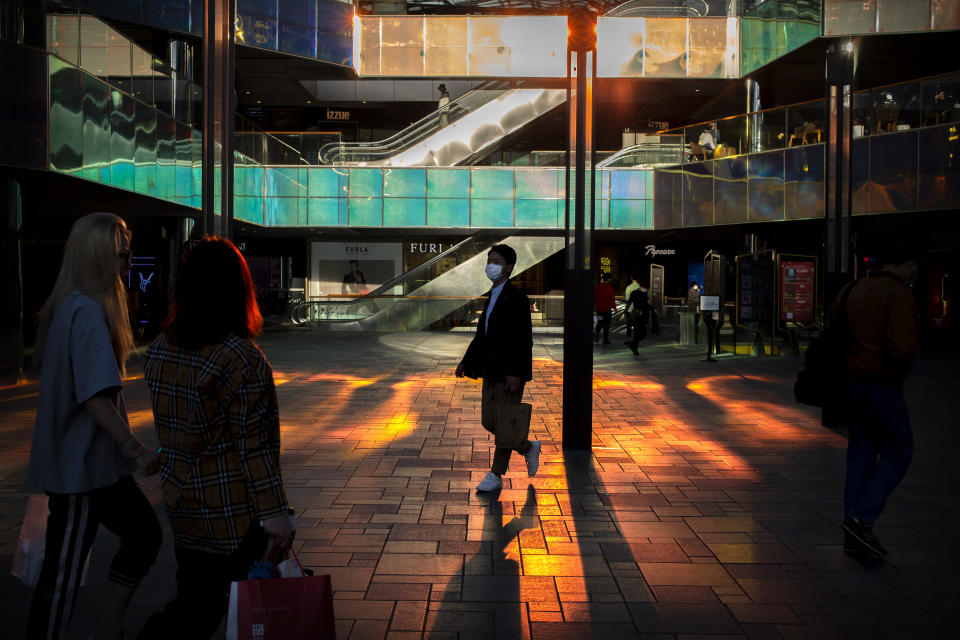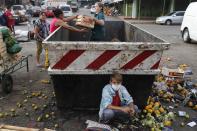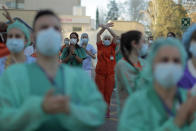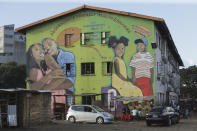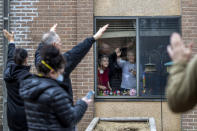What you need to know today about the virus outbreak
More than 6.6 million Americans applied for unemployment benefits last week — doubling a record high set just one week earlier — in a sign that layoffs are accelerating in the midst of the new coronavirus, which has now infected more than 1 million people worldwide.
Meanwhile, President Donald Trump is resisting calls to issue a national stay-at-home order to stem the spread of the coronavirus despite his administration's grim projections of tens of thousands dying. But the administration planned to recommend most Americans wear face coverings.
States are increasingly pushing shutdowns: Florida, Nevada and Pennsylvania have all added or expanded stay-at-home orders.
Here are some of AP’s top stories Thursday on the world’s coronavirus pandemic. Follow APNews.com/VirusOutbreak for updates through the day and APNews.com/UnderstandingtheOutbreak for stories explaining some of its complexities.
WHAT’S HAPPENING TODAY:
— The number of confirmed coronavirus cases worldwide passed the 1 million threshold Thursday in the latest indication of the pandemic's growing foothold around the globe, according to a tally by Johns Hopkins University. The count represents confirmed cases, but the true numbers are believed to be much higher. White House coronavirus task force coordinator Dr. Deborah Birx said incoming infection data suggests not enough Americans are abiding by guidelines in the national “call to action” to stem the spread of the virus.
— The economic damage from the coronavirus crisis is piling up, with an unprecedented 6.6 million Americans filing for unemployment benefits in a single week. The Congressional Budget Office projected the U.S. economy could shrink by an annualized rate exceeding 28%. About half of all working Americans report some kind of income loss affecting themselves or a member of their household, with low-income residents and those without college degrees especially likely to have lost a job, according to a new poll from The Associated Press-NORC Center for Public Affairs Research.
— Calls amplified for people to cover their faces when they go outside. The Trump administration was formalizing new guidance to recommend that most Americans wear face coverings such as T-shirts or bandannas to cover their nose and mouth. Medical-grade masks would be reserved for those dealing directly with the sick. New York City Mayor Bill De Blasio also asked city residents to wear homemade face coverings when they leave their homes.
— Major construction projects moving forward along the U.S. borders with Canada and Mexico are raising fears the coronavirus could race through temporary work camps and spread to rural communities unable to handle an outbreak. Despite a clampdown on people’s movements in much of the country, groups of workers travel every day from camps in New Mexico to build President Donald Trump’s border wall.
— In the South American country of Ecuador, hospitals were turning away patients and bodies were being left on streets and in homes for days in Guayaquil, a normally bustling city that has become a hot spot in Latin America as the coronavirus pandemic spreads.
— Some Americans without direct deposit won't get their payments until mid-August or later from a U.S. economic stimulus package. The IRS will make about 60 million payments to Americans through direct deposit in mid-April, and then paper checks will start going out May 4 at a rate of about 5 million per week, according to a memo obtained Thursday by The Associated Press.
___
WHAT YOU NEED TO KNOW:
For most people, the coronavirus causes mild or moderate symptoms, such as fever and cough that clear up in two to three weeks. For some, especially older adults and people with existing health problems, it can cause more severe illness, including pneumonia and death. The vast majority of people recover.
Here are the symptoms of the virus compared with the common flu.
One of the best ways to prevent spread of the virus is washing your hands with soap and water. The U.S. Centers for Disease Control and Prevention recommends first washing with warm or cold water and then lathering soap for 20 seconds to get it on the backs of hands, between fingers and under fingernails before rinsing off.
You should wash your phone, too. Here’s how.
TRACKING THE VIRUS: Drill down and zoom in at the individual county level, and you can access numbers that will show you the situation where you are, and where loved ones or people you’re worried about live.
___
ONE NUMBER:
— ONE MILLION: The New England Patriots' team plane is expected to return to Boston from China on Thursday carrying more than one million masks critical to health care providers fighting to control the spread of the coronavirus.
___
— BOUNCY FAUCI: The United States’ top infectious disease specialist is getting his own bobblehead. The creation from the National Bobblehead Hall of Fame and Museum in Milwaukee features Dr. Anthony Fauci wearing a suit as he makes a motion showing how the nation needs to “flatten the curve” in the coronavirus pandemic.
— MUSIC GOES ON: Even with its members scattered far and wide by the coronavirus, an orchestra in France has managed to make sweet music in lockdown. Musicians with the National Orchestra of France filmed themselves playing "Bolero" alone at home.
— AMAZING TECHNICOLOR AT HOME: Composer Andrew Lloyd Webber is making some of his filmed musicals available for free on YouTube. On Friday, “Joseph and the Amazing Technicolor Dreamcoat” will be streamable followed a week later by the rock classic “Jesus Christ Superstar."
— TEDDY BEAR HUNT: Teddy bears are popping up in the unlikeliest of places. New Zealanders are embracing an international movement in which people are placing the stuffed animals in their windows during coronavirus lockdowns to brighten the mood and give children a game to play by spotting the bears in their neighborhoods.
___
Follow AP coverage of the virus outbreak at https://apnews.com/VirusOutbreak and https://apnews.com/UnderstandingtheOutbreak
